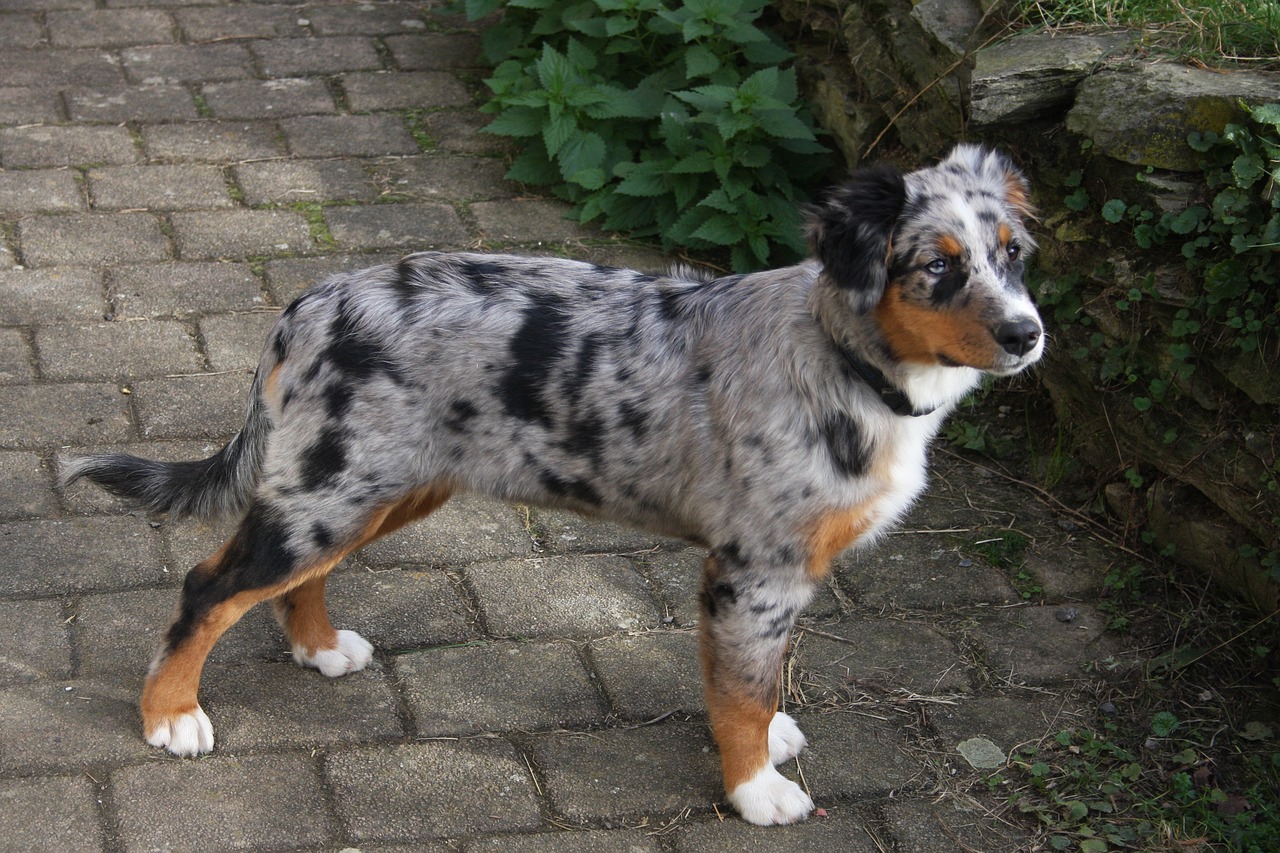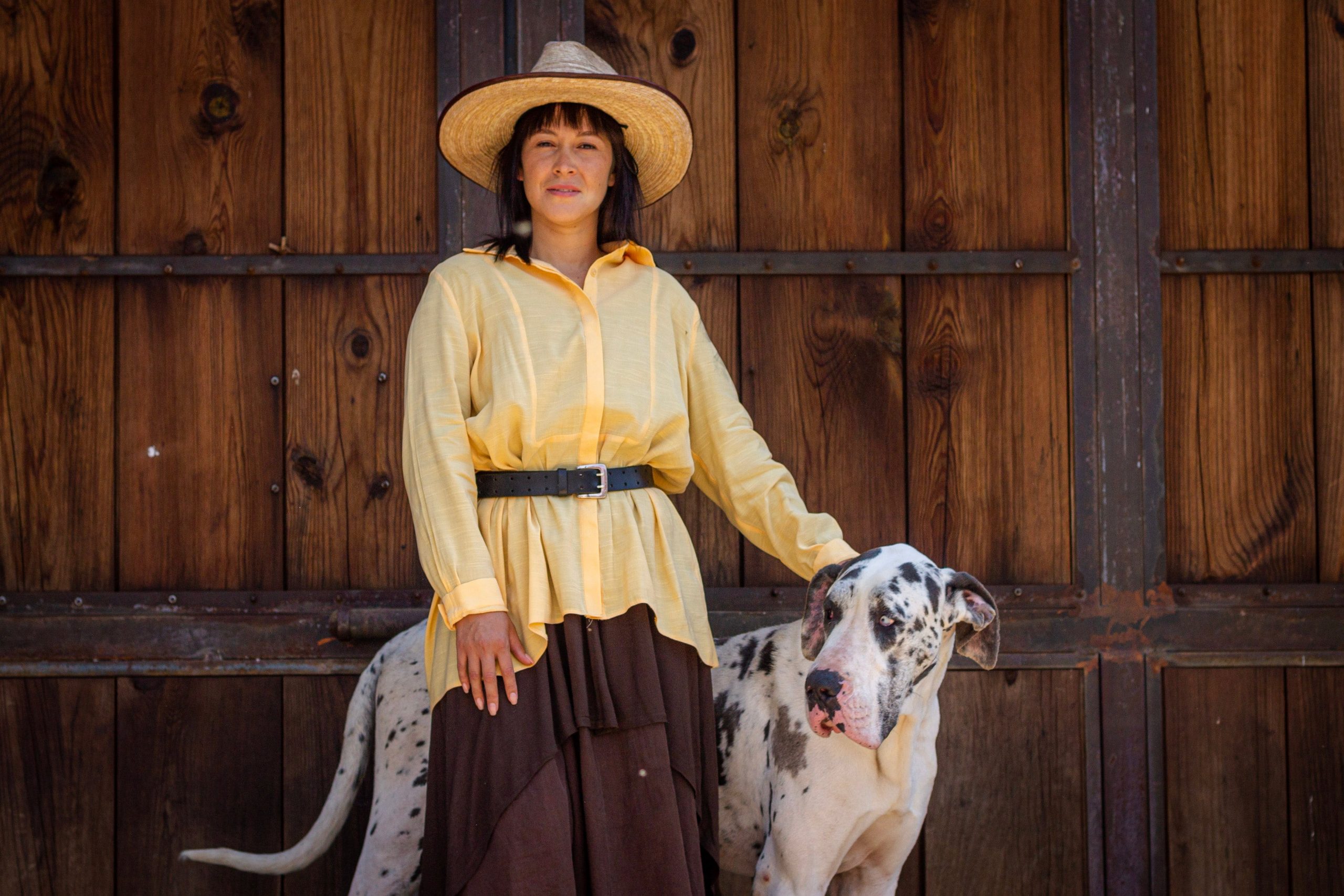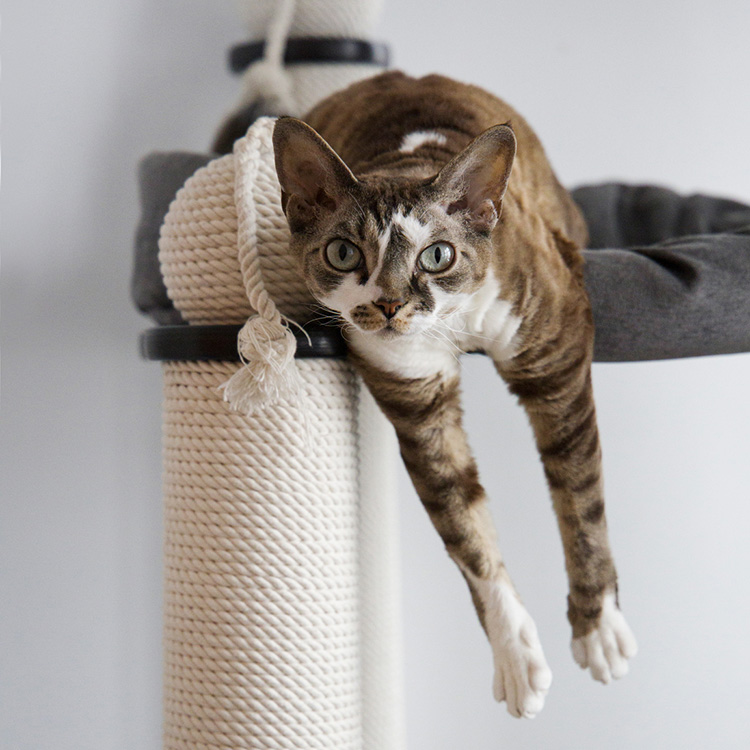Dog breeds come in a variety of shapes, sizes, and, notably, fur patterns. Some breeds stand out with their unique and distinctive coat markings, making them visually striking and easily recognizable. This article focuses on 10 dog breeds with unique fur patterns, exploring what makes each of these breeds’ coat patterns so special and distinct.
1. Dalmatian
Dalmatians are famed for their unique spotted coat, which is a defining feature of the breed. The spots are usually black or liver-colored against a white background. These spots are random in size and placement, making each Dalmatian’s coat pattern unique. The breed’s iconic spotted coat has made it popular in the media and a favorite among dog enthusiasts.
2. Brindle Boxer
Brindle Boxers display a striking coat pattern characterized by a mix of dark stripes on a fawn or tan background. The brindle pattern gives the appearance of a tiger-striped coat, which varies from subtle to very pronounced markings. This pattern is not only distinctive but also adds to the Boxer’s muscular and athletic appearance.
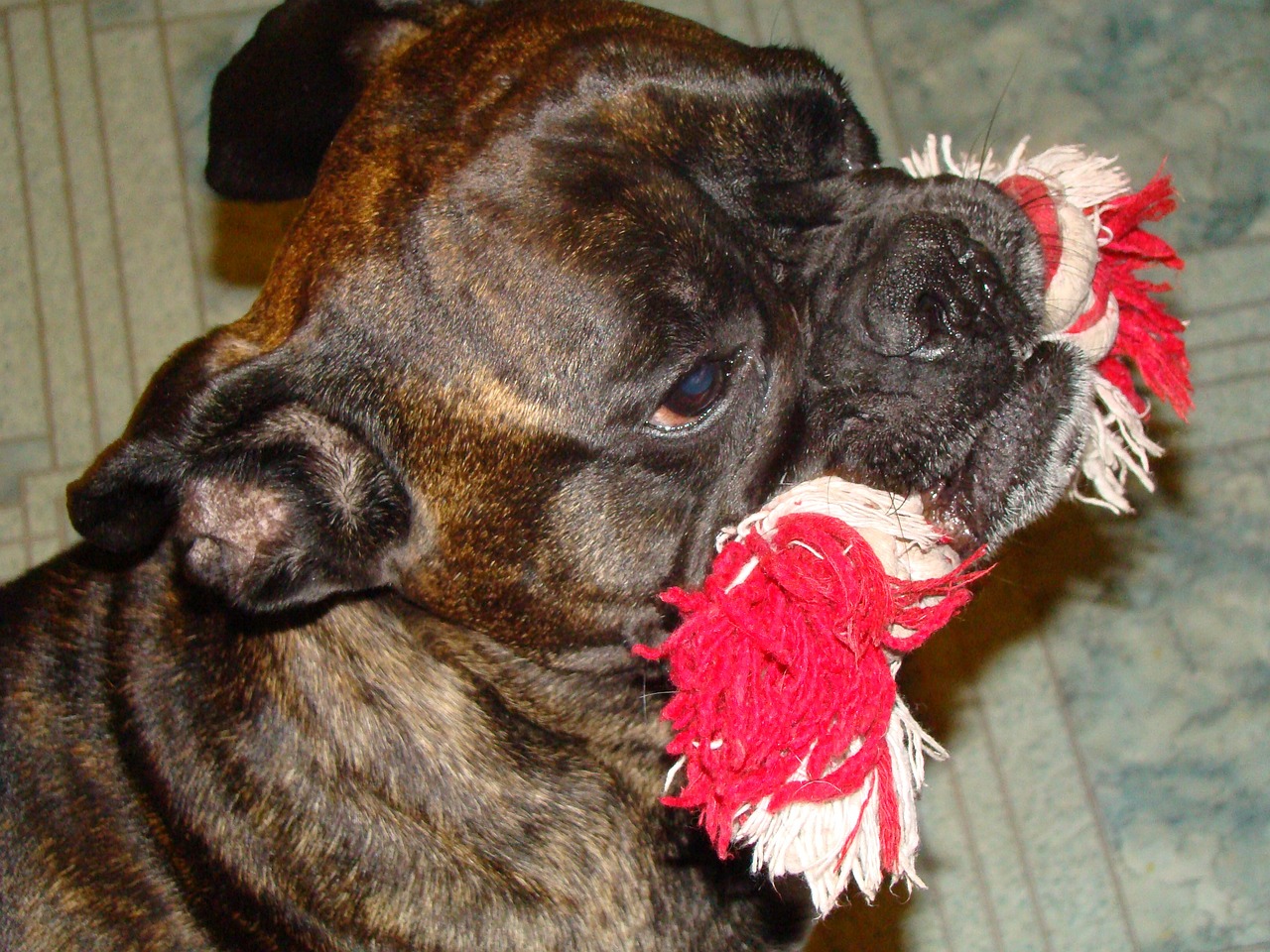
3. Merle Australian Shepherd
The Merle Australian Shepherd boasts a beautiful, marbled coat pattern with contrasting shades and colors. The merle pattern creates a mottled blend of dark and light patches, which can vary greatly among individuals. This pattern is particularly eye-catching and makes each merle Australian Shepherd uniquely attractive.
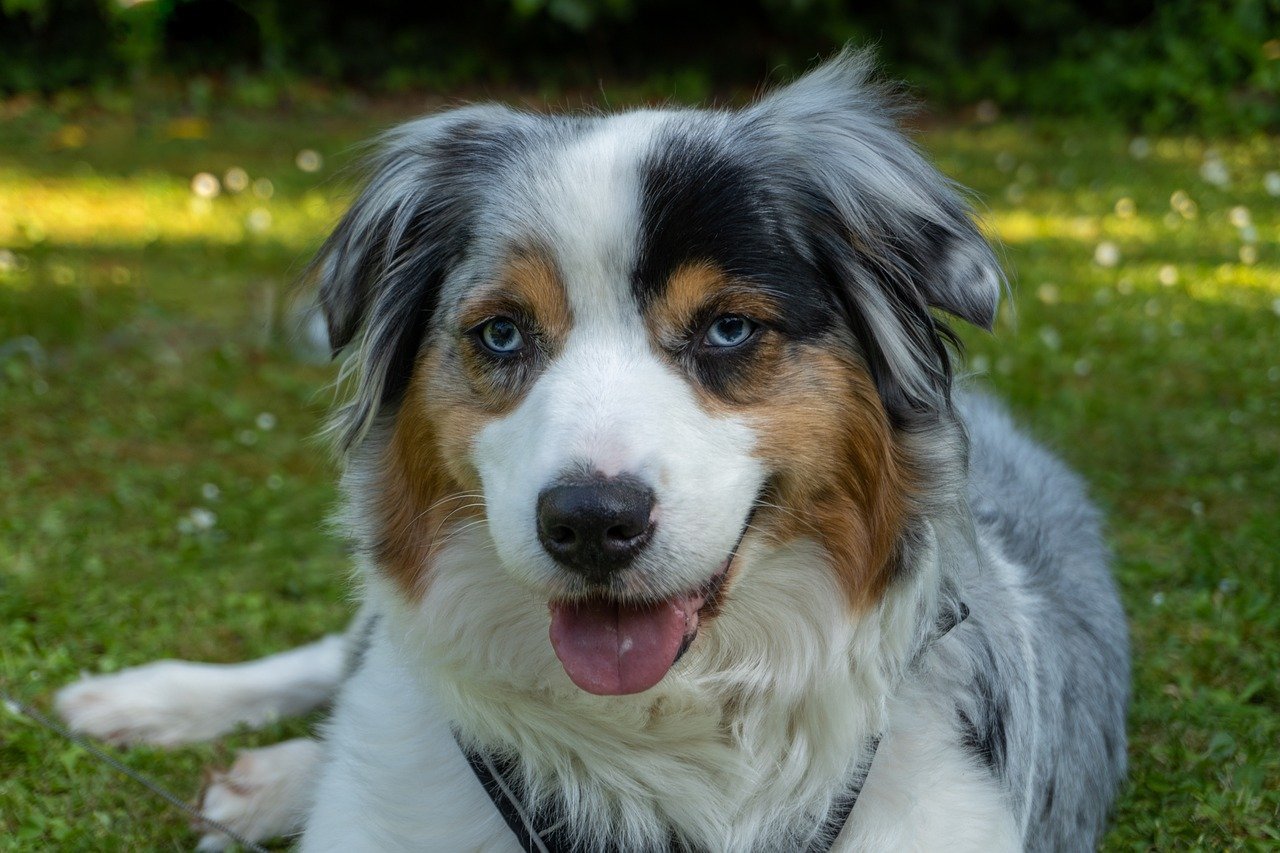
4. Harlequin Great Dane
Harlequin Great Danes have a dramatic and striking coat pattern. Their base coat is pure white with irregularly shaped black patches scattered across their body. This harlequin pattern is unique to the breed and creates a bold, distinctive appearance that is both elegant and commanding.
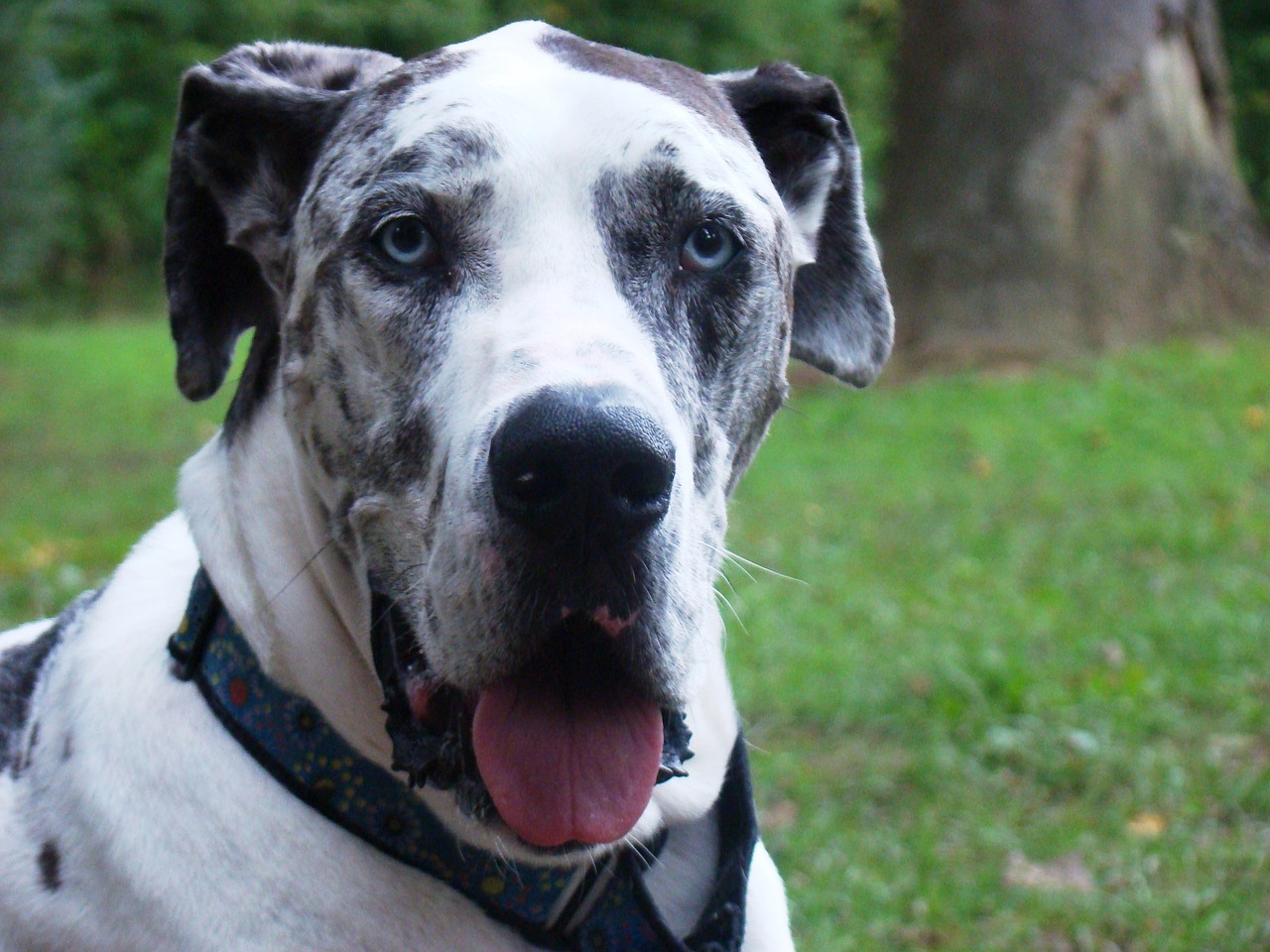
5. Tricolor Bernese Mountain Dog
Bernese Mountain Dogs are known for their gorgeous tricolor coat pattern, featuring black, white, and rust markings. The black coat is dominant, with symmetrical white and rust markings on the face, chest, legs, and tail. This tricolor pattern is a hallmark of the breed and adds to their majestic appearance.
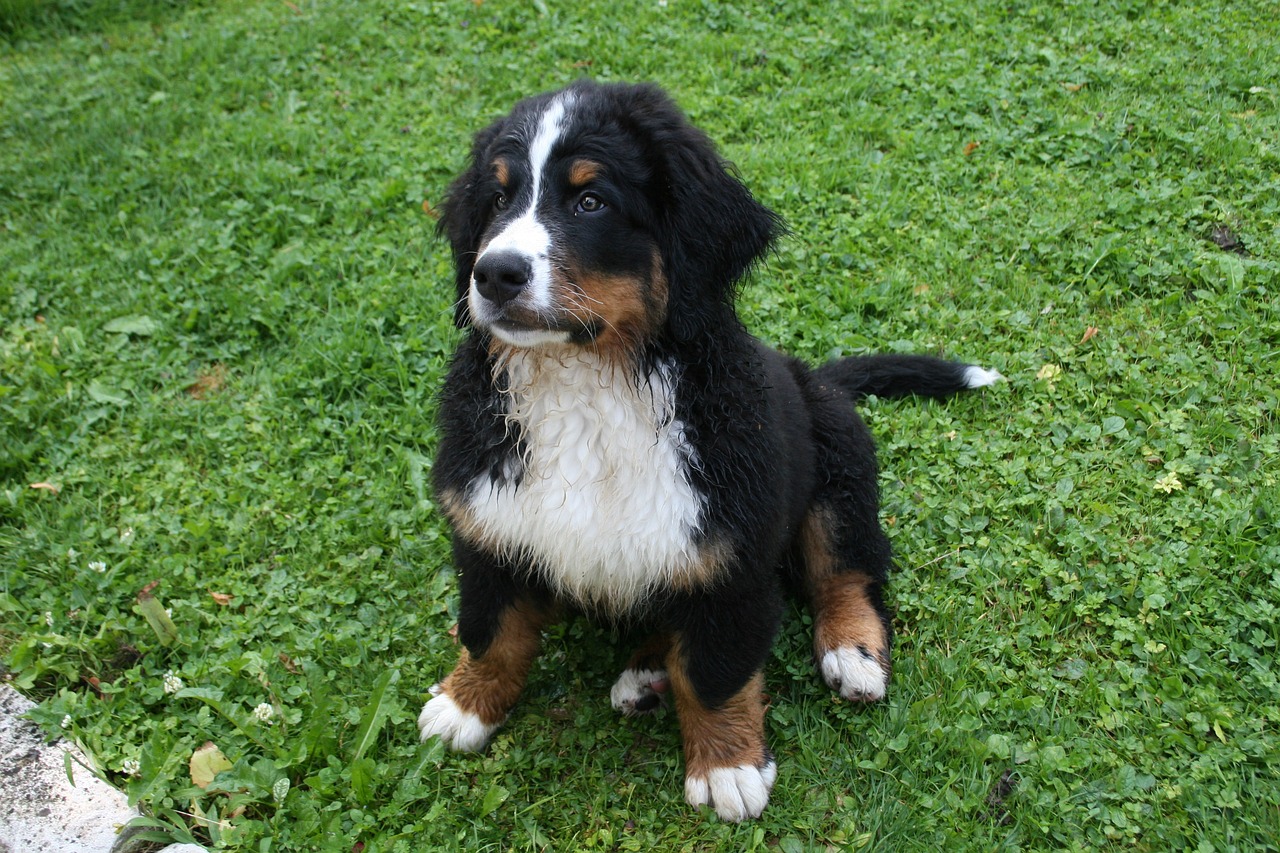
6. Blue Tick Coonhound
The Blue Tick Coonhound sports a distinctive coat pattern with dark blue coloration and ticking. Ticking refers to small, even spots that cover their body and create a speckled effect. This coat pattern is not only unique but also functional, providing camouflage during hunting.
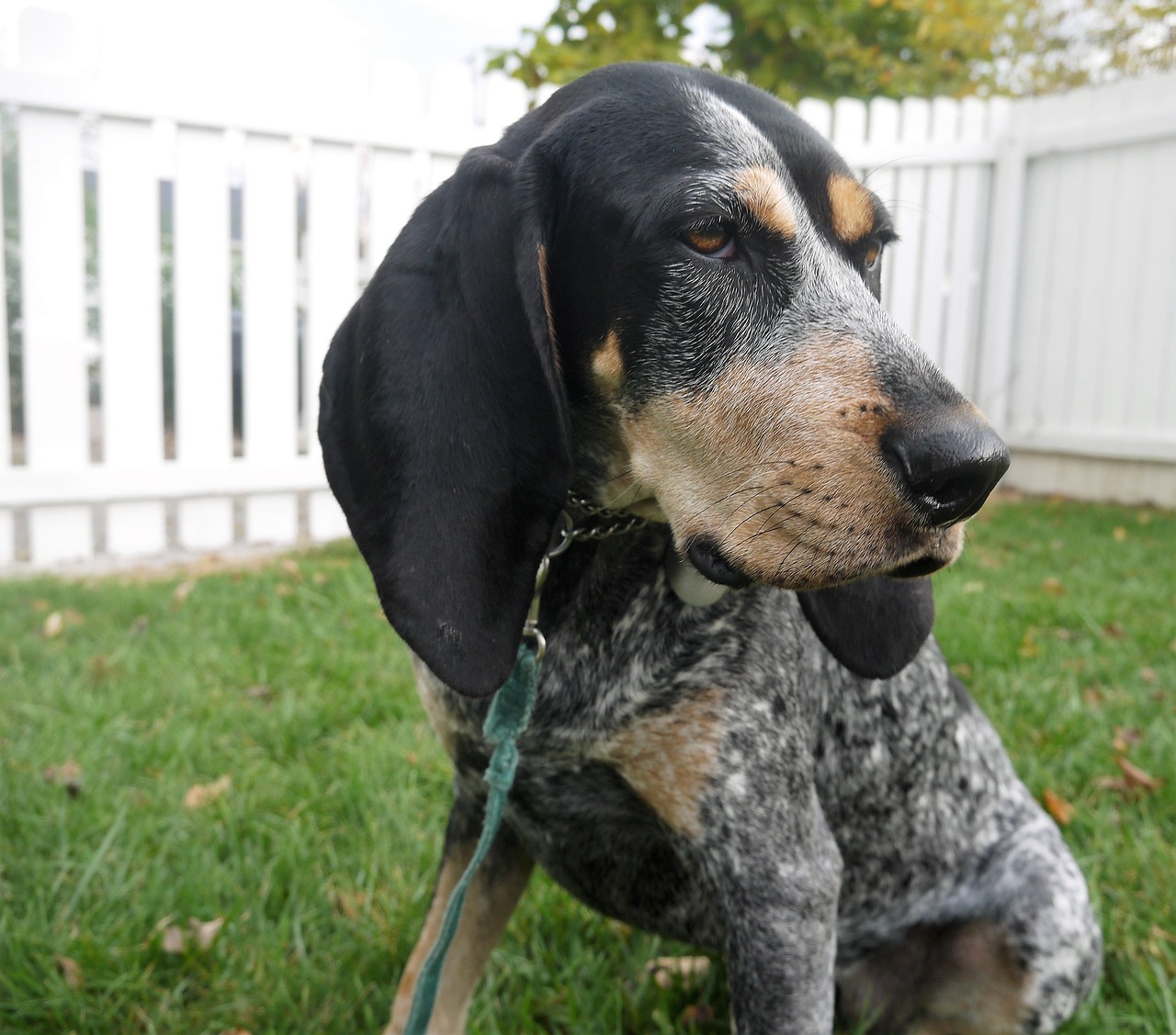
7. Sable Border Collie
Sable Border Collies have a coat pattern where each individual hair is multi-colored, typically with black tips and a lighter base color such as gold or gray. This creates a shaded or sable effect, which can vary in intensity and distribution, giving each dog a unique look.
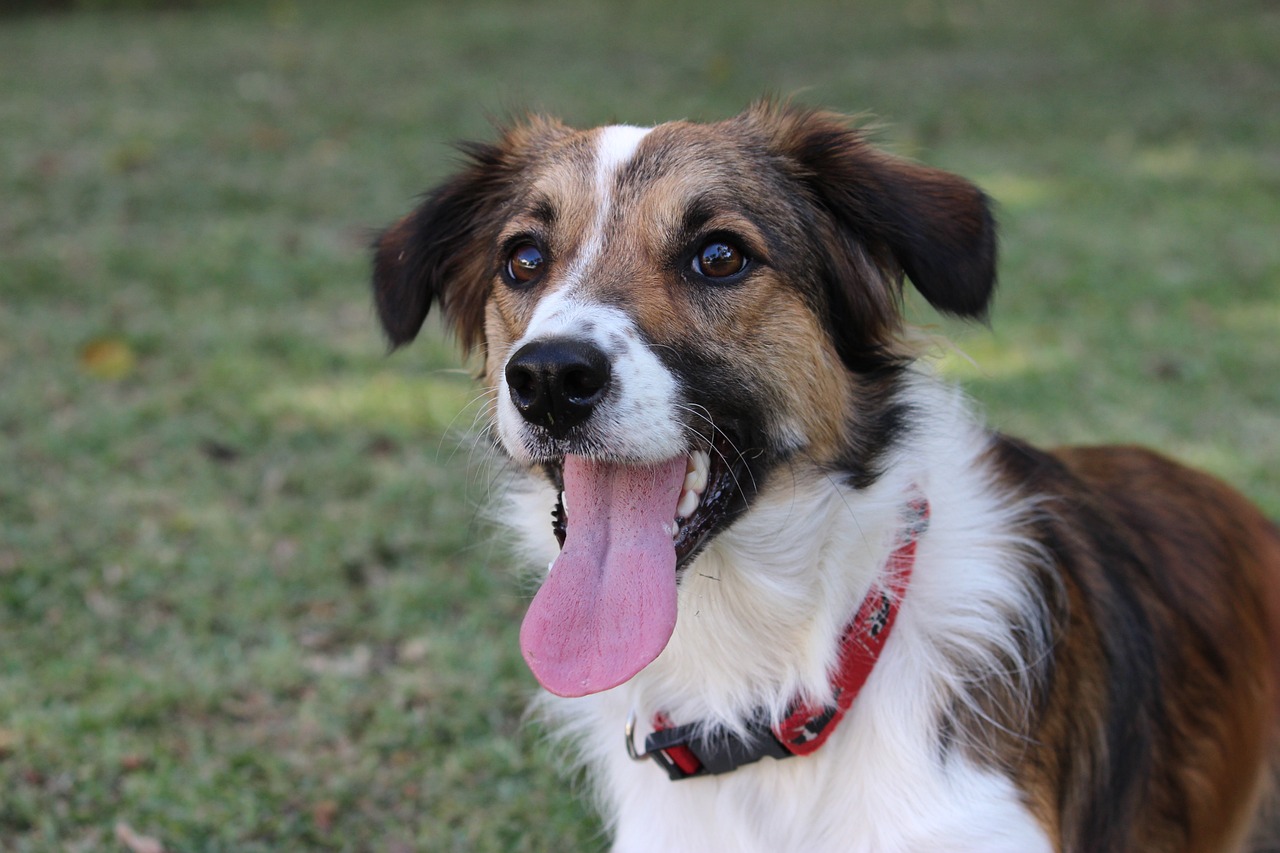
8. Piebald Dachshund
Piebald Dachshunds have a distinct coat pattern characterized by white spots or patches over a primary color, such as black, red, or chocolate. This piebald pattern creates a striking contrast and is quite rare, making it a unique and sought-after coat variation in Dachshunds.

9. Black and Tan Doberman Pinscher
The Doberman Pinscher is well-known for its sleek black coat with sharply defined rust-colored markings. These markings appear above the eyes, on the muzzle, chest, legs, and below the tail, creating a striking and elegant appearance. The sharp contrast between the black and tan is a signature look for the breed.
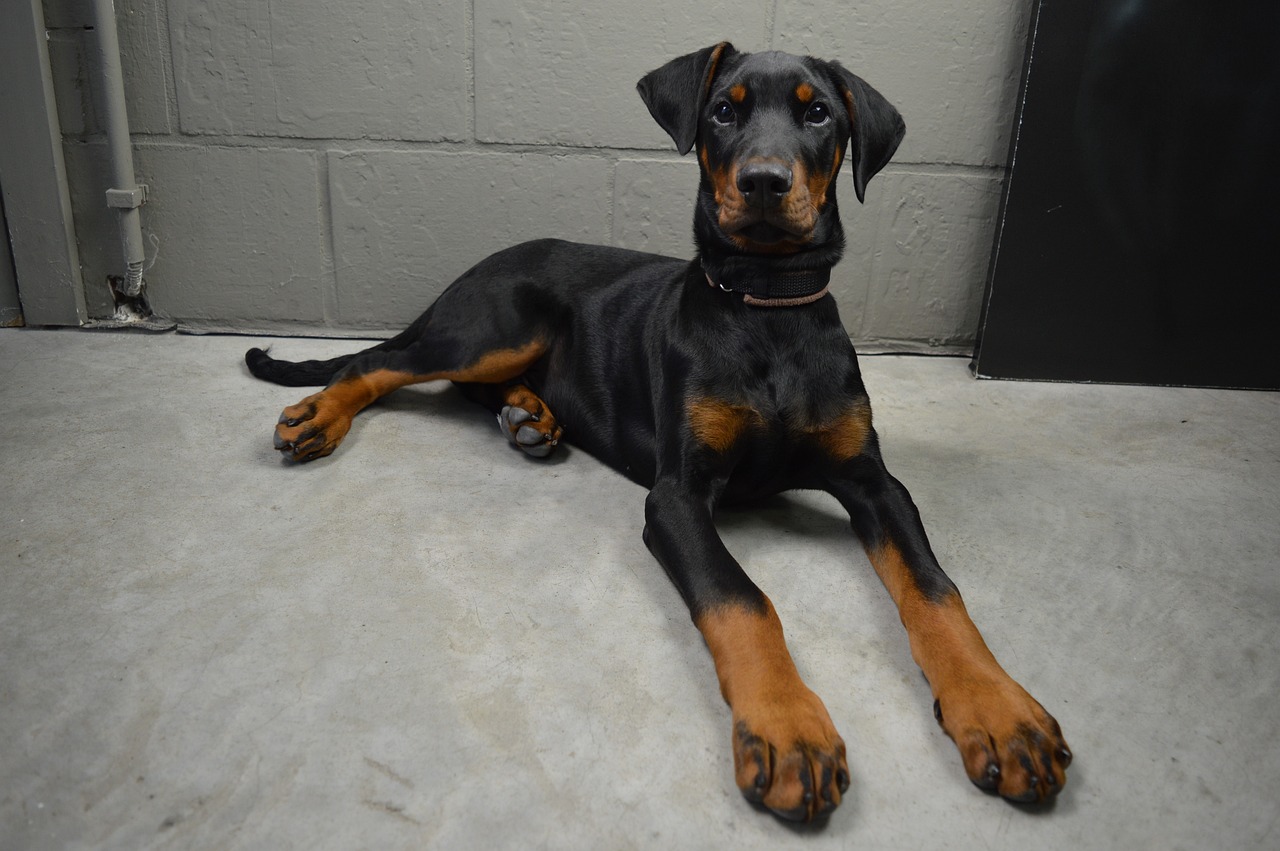
10. Catahoula Leopard Dog
The Catahoula Leopard Dog, the state dog of Louisiana, is famous for its remarkable leopard-like spotted coat. These spots can vary in size and color, ranging from black and brown to red or blue, often with a merle or brindle pattern. The uniqueness of each Catahoula’s coat makes this breed particularly striking.
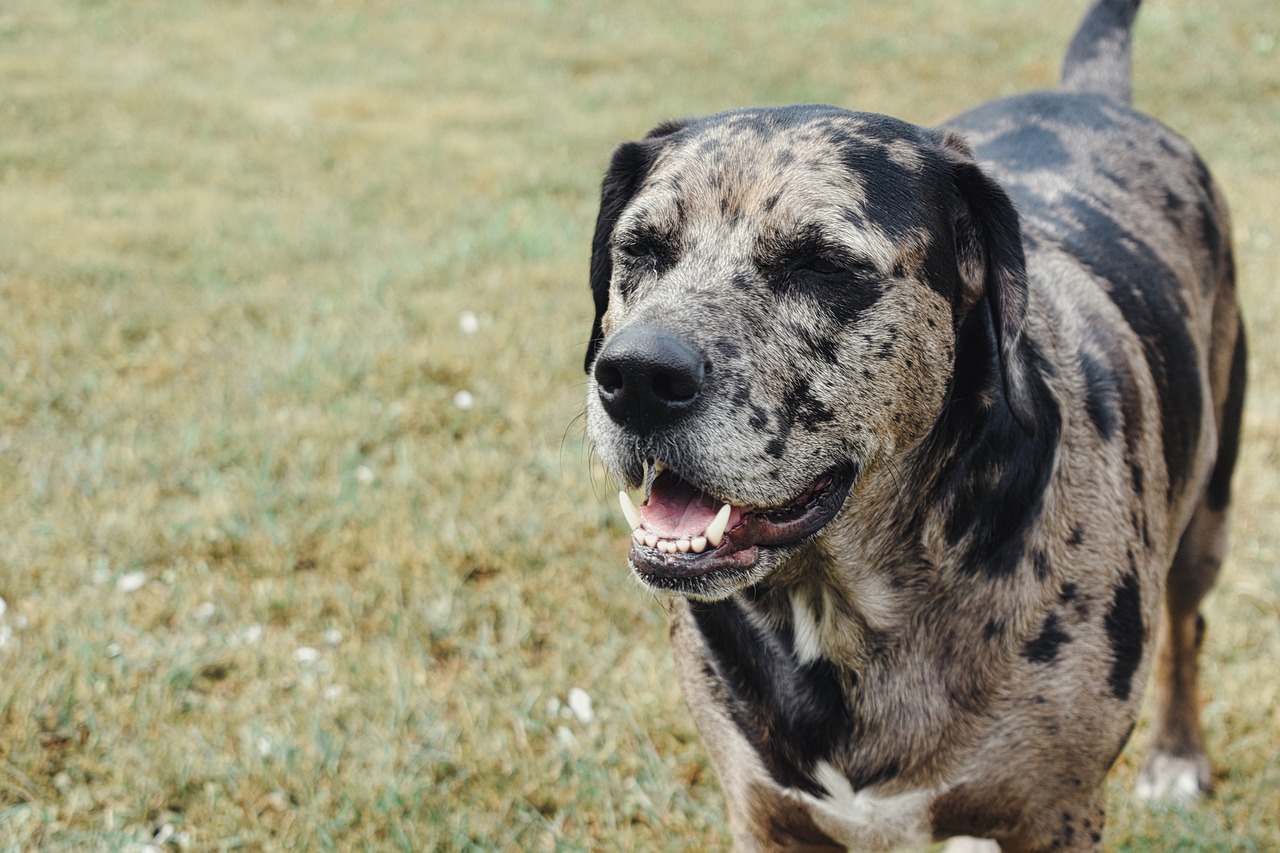
Conclusion
These 10 dog breeds showcase an incredible variety of fur patterns, from spots and stripes to marbled and speckled coats. Each breed’s unique pattern contributes to its distinctive look and charm, reflecting the diversity and beauty found within the canine world. These patterns not only contribute to the aesthetic appeal of the breeds but often have historical and functional significance as well.
